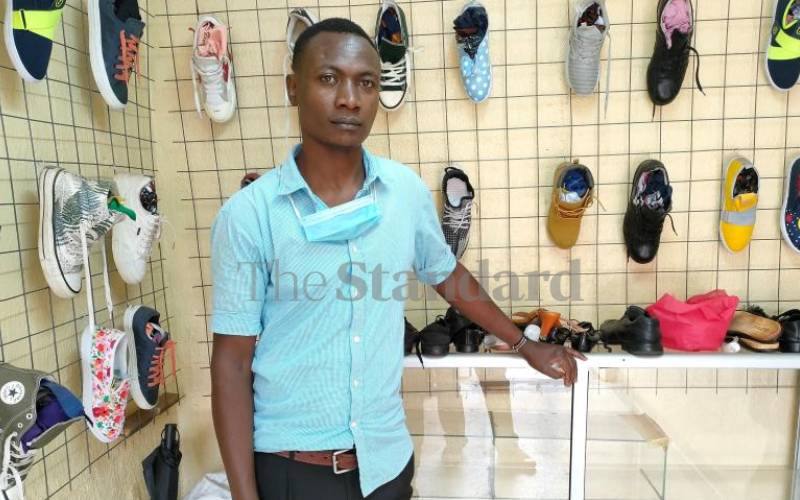×
The Standard e-Paper
Kenya’s Boldest Voice

Reuben Muigai, a trader at Kahawa West Market. [Nanjinia Wamuswa, Standard]
In 2019, Reuben Muigai started a salon and barbershop at Kahawa West City Council Market. Being a busy location, the number of clients grew by day and profit was good.